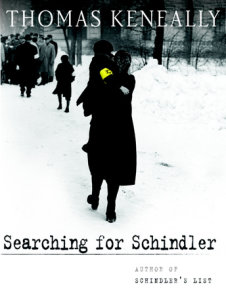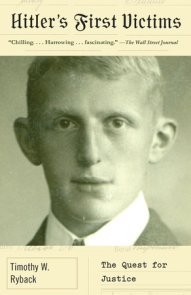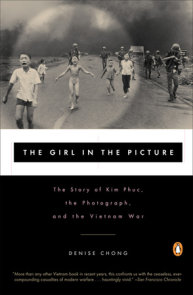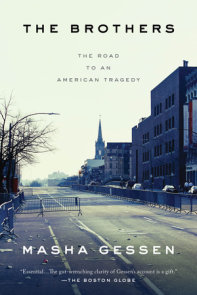READERS GUIDE
Questions and Topics for Discussion
1. What are Nafisi’s “things I’ve been silent about”? Are there things you have been silent about, and why?
2. In this memoir, Nafisi candidly describes the positive and the negative aspects of her childhood relationship with both her father and her mother. Looking back, which parent ultimately had the most influence on the author’s life? How did the relationships change and develop over time? In what ways do you feel that they were healthy or unhealthy, and why?
3. In many ways the most powerful relationship in the book is the mother- daughter relationship between the author and her own mother, and the struggles they face in adjusting to each other’s personality and expectations, both personal and cultural. Do you think this tension came from the two women’s similarities or differences? Do you see any parallels to relationships within your own family?
4. Nafisi writes that “as a family we were fond of telling stories.” Describe the different kinds of stories her father and mother embraced. How were these “fictions” similar or different, and what purpose did they serve? In what ways do you see the author continuing this family habit, or in what ways do you see her breaking from it?
5. Talk about the theme of silence in the book. Is silence either always a bad choice or always a good one? How does it relate to personal and cultural repression? Do you consider silence a freedom or a constraint?
6. Nafisi talks about the personal becoming the political. Name three examples of this theme from the book, and discuss the implications of the intersection of public and private in each case.
7. In the Prologue, Nafisi writes, “Approval! My parents taught me how deadly this desire could be.” What do you think she means by this? Do you agree that the longing for approval can be dangerous, and if so, in what ways?
8. Nafisi describes the different social, cultural, and religious atmospheres in Iran that shaped the experiences of four generations of women in her family. How were Azar’s grandmother’s experiences similar or different from her daughter Negar’s? What about Azar and her mother? Discuss the ways in which each woman’s experience may have shaped her personality and approach to life. Do you see historical comparisons to women’s experiences in your own family?
9. Aunt Mina frequently uses the phrase “Another intelligent woman gone to waste.” What does it mean for these women to have “gone to waste”? Can you list five women in Things I’ve Been Silent About who fall into this category? Was there anything, in your opinion, that they could have done to prevent themselves from going “to waste”? Are there public figures, or women in your own life, who might also fit this description? How are their experiences similar to or different from those of the Iranian women in the book?
10. The stories of the Shahnameh play a large role in this memoir. Who are the Persian literary heroines with whom Nafisi identifies most closely, and why? What relevance do these fictional women have to her own life and to the lives of the women around her?
11. “My father used to say half jokingly that his years in jail were his most fruitful.” How did those four years in jail affect the arc of Father’s life, and life for the whole Nafisi family? Metaphorically, what other jails are there in the book, and what are the effects on the lives of those trapped inside them? Father found a way to flourish artistically and intellectually during his incarceration. Could it be argued that this kind of confinement is actually beneficial, in some ways, for the development of personality and ideas? Why or why not?
12. Nafisi says her mother “knew my father would be unfaithful to her long before he even considered it.” Are there conditions that justify infidelity, do you think, or is it always indefensible? Would you consider marriage without love as a form of infidelity?
13. When parents divorce, the children are always deeply affected; in what ways did the tension between Nafisi’s parents influence her experience and development? How different do you think her life experience might have been had her parents remained together?
14. Discuss the ways in which places—the different houses, cities, and countries in which Nafisi lives over the course of the book—affect Nafisi’s perception of herself, her family, and Iranian politics and culture.




















